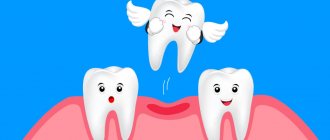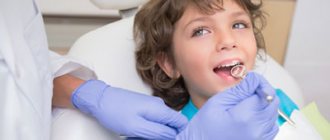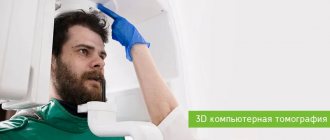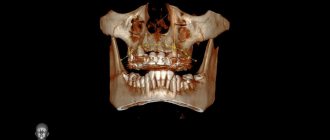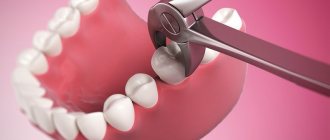Operations take place in the first half of the day.
The operation is performed on an empty stomach, you should not drink before the operation (at least 8 hours must pass after the last meal or drink).
The operation is not performed in the period immediately before, during or immediately after menstruation.
Operations are not performed during acute infectious diseases and during exacerbation of chronic diseases.
After discharge from the clinic (after operations) or after some non-surgical corrections, it is not recommended to drive independently.
How to prepare for surgery
Your good physical condition and optimistic attitude are an important factor in the success of the operation. Therefore, we recommend that you approach the preparation for surgery seriously and calmly, and assist the surgeon in achieving the best result. All factors that influence the course of the operation and facilitate rehabilitation must be discussed with your doctor and be sure to follow all his recommendations.
Here are the main factors influencing the success of the operation:
- Your well-being, health status, psychological state;
- It is necessary to postpone plastic surgery if there is the slightest symptom of ARVI until complete recovery and restoration of strength after the disease.
- Bring the surgeon's attention to any infection to which you are susceptible (herpes, infection of the skin, eyes, genitourinary tract).
- If you have chronic diseases, you should consult about the possibility of plastic surgery with your attending physician, and do not undergo surgery during an exacerbation of a chronic disease.
- Do not decide to have surgery when you are stressed or depressed. You should not have plastic surgery during a period of family troubles or divorce proceedings. During the post-rehabilitation period, you will need a calm environment, support and understanding of loved ones.
- Smoking and excessive alcohol consumption can weaken your health. If you are constantly taking medications, hormonal drugs, have been prescribed any other medications, or are undergoing treatment with traditional medicine, you must inform your plastic surgeon and anesthesiologist about this.
- Be sure to tell your anesthesiologist and plastic surgeon if you have any allergies to medications or any other products.
- Together with a plastic surgeon, carefully analyze and evaluate all the structural features of your body: asymmetry of the mammary glands or chest, shoulder position, structural features of the sternum and ribs, skin condition (presence of stretch marks).
- Do not hesitate to ask your plastic surgeon about any questions that remain unclear to you. Achieve complete mutual understanding between you and your doctor. Be sincere and open. If after all the discussions with the doctor you still have at least minimal doubts about the result, do a computer simulation.
- If you are prone to bleeding or bruise frequently or have nosebleeds, tell your surgeon and anesthesiologist.
- The formation of a thin and invisible postoperative scar largely depends on your compliance with your doctor’s recommendations. Excessive stretching and friction of the seam provokes the formation of a rough scar! Follow your plastic surgeon's instructions for suture care exactly and completely. Wear compression garments for as long as prescribed.
Our task is to make your life more beautiful. We do not perform operations for life-saving reasons, but after surgery in our center, your life will change: you will feel beautiful and confident, young and desirable. Be consistent and persistent in achieving your goal, help the plastic surgeon make your dream come true and it will definitely come true.
What you need to know to properly prepare for anesthesia.
- Operations cannot be performed during acute infectious diseases. Common colds and acute respiratory infections are the most common reasons for postponing surgery
- If you have chronic diseases, then before surgery under general anesthesia they should be in a state of stable remission (without exacerbation).
- The anesthesiologist may prescribe additional studies and consultations that are not included in the mandatory list, as well as reschedule and even cancel surgery for your safety.
- It is necessary to remember in advance (make a list) and inform the anesthesiologist about all existing diseases, operations, allergic reactions and medications that you are taking. In this case, no information can be insignificant or superfluous.
- You must remove all jewelry, piercings and contact lenses. It is advisable to keep your fingernails free of false nails and polish, as this may interfere with the operation of some sensors.
- For surgery, it is recommended to wear underwear made of natural cotton (no synthetics).
- You should not drink or eat before surgery. (6 hours before surgery, you must avoid taking any food or drink). The evening before surgery, prepare yourself a light dinner.
- If you are taking any medications, be sure to inform the anesthesiologist in advance, as some medications must be stopped before surgery.
Types of general anesthesia
Depending on the method of administering drugs for general anesthesia, inhalation and intravenous anesthesia are distinguished.
With inhalation anesthesia, the anesthetic enters the body through the respiratory tract; with intravenous anesthesia, it is injected into the bloodstream. A combined method involving inhalation and intravenous administration of the drug is actively used. To maintain external respiration, an endotracheal tube or laryngeal mask is used. The first method is called intubation anesthesia (or endotracheal), the second - mask. You will not need deeper knowledge about the specifics of an anesthesiologist’s work; it is much more important to understand how to properly prepare for anesthesia.
Good general anesthesia is the result of the consolidated efforts of the anesthesiologist and the patient. Therefore, we recommend that you read the next section very carefully.
"Frivolous" anesthesia
Many people associate anesthesia exclusively with serious operations, when a person is euthanized and completely anesthetized. However, everyone experiences anesthesia during less significant interventions, for example, in the dentist's office.
Article on the topic
Dental anesthesia, or what you need to tell your dentist about And despite the fact that there are modern safe drugs for local anesthesia, carpule technology is used, when the medicine is already prepared and packaged in syringes at the factory, not everyone has dental anesthesia without complications.
The anesthetic risk group includes 30% of those who came for dental treatment. These are people with cardiovascular diseases, allergies, and endocrine pathologies. The condition of the liver and kidneys plays an important role - you need to tell your doctor about the presence of any of these diseases, or better yet, provide medical documents.
Also vulnerable are the elderly, pregnant women, children and those who are very afraid of dental treatment.
Eating
Avoid chewing hard candy, ice, or other hard foods (such as hard chocolate or dry fish) as they may loosen or break the abutment screw.
Avoid foods such as caramel or toffee, as they may stick to the crown and cause the abutment screw to loosen.
Do not open bottles or crack nuts with your teeth for the same reasons.
Wear protective sports mouth guards when participating in sports and avoid direct blows to the face.
Refrain from grinding your teeth. If creaking occurs unintentionally or during sleep (bruxism), notify your dentist and he will make you a thin night guard.
The length of their service depends on the quality and regularity of care for implants.
Before and after implantation
What tests will you be asked to undergo before vein surgery?
In addition to the mandatory Doppler ultrasound, you will have to undergo tests:
- for blood clotting, group and Rh factor,
- HIV, syphilis and hepatitis,
- blood chemistry,
- general urine analysis.
They also prescribe fluorography and ECG, consultation with an allergist, anesthesiologist and therapist, gynecologist or urologist if the groin area is being operated on. Based on the results of these examinations, the surgeon decides whether the patient is ready for surgery.
Advantages
Of course, the main advantage of general anesthesia is the complete absence of any patient movements, which lengthen the operation and complicate the doctor’s actions. In addition to this fact, there are a number of other advantages of dental treatment in a completely unconscious position, that is, the following:
- relevant for super-traumatic procedures, the patient does not feel compression, vibrations or other tactile stimuli at all;
- absence of any pain after the procedure, which is due to the long residual presence of the drug in the blood;
- minimizing the risk of postoperative complications, since the doctor is not distracted by the patient’s reaction, which can be quite different if anesthesia or at least sedation is not used;
- decreased saliva production, which is ensured by special medications;
Despite all the advantages of general anesthesia, its use is indicated only in certain cases, in contrast to sedation, which is used at the request of the patient in the dental office, even when the procedure is minimally invasive.
Important! When performing sedation (not anesthesia), the anesthesiologist always ensures maximum psycho-emotional comfort, since he excludes specific micro-irritants from the child’s memory: white coats, smells of the dental operating room, noise effects, medical sounds and visual stimuli;
Under sedation, it is possible to perform any full-scale operation to restore the dentition (bone grafting, ENT surgery, implantation using sinus lift surgery, prosthetics).
In what cases is dental treatment performed under anesthesia in adults?
The problem of ordinary fear of the dentist does not require such a radical measure as anesthesia, but can be easily solved with the help of sedation. This is a gentle alternative to general anesthesia, in which the person is half asleep, physically and emotionally relaxed, and also does not retain memories of what happened. By the way, the vast majority of clinics, when offering dental treatment under anesthesia, still mean sedation. However, real “general anesthesia” with loss of consciousness is very often used in modern dental practice.
Meanwhile, the main dental interventions for which general anesthesia may be a better choice than local anesthesia are only complex maxillofacial operations, as well as a number of indications that are worth knowing about:
- allergy to local anesthetics;
- low pain threshold;
- large volume of required treatment;
- developed gag reflex;
- increased fear of dental treatment.
Oral hygiene
Regardless of the size or number of implants, they must be cared for as if they were regular teeth. Brush and floss your dental implants twice a day. Use special fluffy dental floss (for example, Oral-B superfloss or ultrafloss).
When brushing your teeth, pay special attention to the back teeth and between teeth. Use a soft or medium-hard brush. In addition, use an irrigator for additional deep cleaning of the interdental spaces with water irrigation.
There are special brushes that can be used to clean interdental spaces - dental brushes. Ask your dentist about them - in some cases they are not recommended.
Visit your dental hygienist twice a year; they are the only ones who can clean your implants as thoroughly as necessary. Regular visits to the dentist are very important. Your dentist will check the condition of your gums, jaws and implants.
Smoking is bad for your health and for dental implants, too. To have a good prognosis for the lifespan of your implants, it would be a good idea if you stopped smoking.
Additional Tips
Avoid lifting heavy objects, bending over, playing sports, or taking hot baths for 5 to 7 days after surgery.
Within a few days, performance and the ability to drive may be reduced.
Remember to take medications prescribed by your dental surgeon after surgery.
We kindly ask you!
Appear for examination and removal of stitches 5-7 days after surgery, in agreement with your surgeon. You must immediately notify your surgeon or clinic administrator of any changes in your health.
Recommendations for caring for dental implants
The service life of the implant depends on:
- The correctness of the surgical and prosthetic stages carried out in the dental clinic.
- The patient's compliance with the recommendations given by the dentist immediately in the postoperative period and the period after implant prosthetics.
- Careful hygienic care of the “implant-crown” structure.
- Blood supply to bone tissue and gums in the area of implantation. (Smoking cigars and cigarettes has a very, very negative effect on peripheral blood circulation, which can even interfere with implant implantation.!!!)
Anesthesia today
Today there are three main types of anesthesia - local, general and spinal. For quick interventions and for children, inhalation anesthesia is used - the child inhales an anesthetic inhalation mixture through a mask and falls asleep. Intravenous anesthesia is used for long and difficult operations.
By the way
Epidural anesthesia does not work for 1 in 20 patients, and red-haired people need 20% more anesthetics to stop their pain. In traumatology, regional anesthesia is used - a local anesthetic is injected into the area of the nerve, providing complete anesthesia of the limb. Epidural anesthesia is very popular for facilitating the labor process, since the patient can either remain conscious or doze off under the influence of drugs.
Spinal anesthesia is difficult to control and is rarely used, but the patient is completely switched off and does not feel pain. Anesthesia with preserved consciousness is used only in special cases, most often in neurosurgery, if it is necessary to maintain the patient’s consciousness and communicate with him during the operation. Oral (through the mouth) and rectal (through the anus, using an enema) anesthesia is practically not used today. The intramuscular method of pain relief is also becoming a thing of the past.
The cardiovascular system
It is difficult to separate the effects of nicotine on the central nervous system and the cardiovascular system, they are so interrelated.
One of the typical manifestations of nicotine stimulation is a pathological increase in cardiac muscle activity due to the effect of nicotine on the conduction system of the heart. This effect consists of increasing the contractile activity of the heart, vascular tone, and blood pressure. The myocardium in such situations consumes more oxygen, and this is precisely the problem - due to insufficient respiratory function.
Nicotine is a tissue poison, and one of its toxic properties is that it disrupts the ratio of calcium and sodium in cells, leading to hyperexcitability of cardiomyocytes (heart cells) with the subsequent occurrence of arrhythmia and ischemic foci.
Before surgery, it is necessary to carry out professional oral hygiene.
If the operation is performed with an anesthesiologist, you must come with an accompanying person, or the operation will be cancelled.
Recommendations for surgical treatment
After surgery, you may experience pain, which will go away as the tissue heals. Postoperative swelling or hematoma can also occur in areas adjacent to the surgical site, which is a natural consequence of surgery. There may be a slight increase in body temperature.
Please follow our recommendations!
After general anesthesia
Even after a good general anesthesia, in the first hours there is short-term confusion, disorientation in space and time, drowsiness, nausea, and dizziness. As the anesthetic drugs wear off, pain appears in the postoperative wound, but it is successfully relieved by the administration of strong anesthetics.
After general anesthesia with an endotracheal tube, patients complain of pain and sore throat caused by irritation of the mucous membrane of the upper respiratory tract, but this symptom, like nausea, passes very quickly. As a rule, patients feel well 3-4 hours after surgery, and on the second day they leave the clinic and return home.
